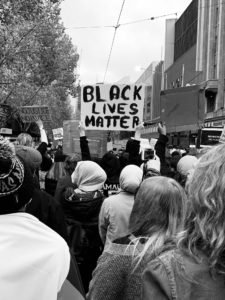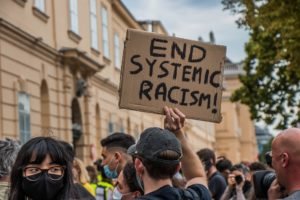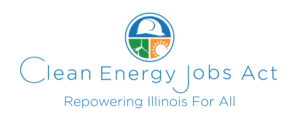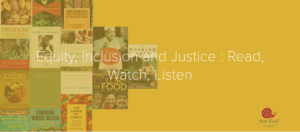Addressing Environmental Racism
These past few weeks almost everyone has had a response to the events that led to recent marches and protests decrying racism.

Collective Resource Compost stands in solidarity with Black Lives Matter and grieves with the rest of the nation the deaths of George Floyd, Breonna Taylor, Ahmaud Arbery, Tony McDade and so many others. We are committed to addressing systemic racism and systemic bias at Collective Resource Compost and in our work with other businesses and organizations.
This is a time of reflection, for us to look inward to determine how we need to act outward.
It is clear that inaction has contributed to the problem. We, at Collective Resource Compost, have been thinking about what actions we can take to address the problem. Education has always been an important part of our mission. It began with educating on composting and zero waste and has since broadened to other areas of sustainability.
You may or may not have heard of the term, “environmental racism”. Here is one definition: Environmental racism is a concept in the environmental justice movement, which developed in the United States throughout the 1970s and 1980s. The term is used to describe environmental injustice that occurs within a racialized context both in practice and policy. In the United States, environmental racism criticizes inequalities between urban and exurban areas after white flight. Internationally, environmental racism can refer to the effects of the global waste trade, like the negative health impact of the export of electronic waste to China from developed countries.

We feel that it is time for us to not only educate ourselves further on the topic but to pass on what we’ve learned to our customers. Our hope is that education will lead to action.
We are most interested in the local implications of this in Chicago, Chicagoland and Illinois. As always, we have to thank our sustainability community for helping us educate.
Illinois Environmental Council sends out Action Alerts that are also listed on their website. Some of these actions come in the form of signing petitions like this current action to prevent a known polluter from relocating to a predominantly Black and Brown community.
Our composting customers Faith in Place and Elevate Energy also do a good job of making sure that the voices of Black and Brown communities are heard.
I like this diverse selection of book recommendations from their staff on Faith in Place’s website.
Elevate Energy has begun a 5-part series of podcasts called Climate Changemakers that profile community leaders working on environmental justice issues. The series is available to listen on their website.
They are also holding Town Hall Roundtables on Zoom and YouTube. I attended one this week and my takeaway was that we should continue to let our representatives know that we support CEJA, the Clean Energy Jobs Act which promotes jobs, equity and economic opportunity, especially in communities of color.

If you don’t know your state legislators, you can find their info here. Citizens’ Utility Board has an easy interface for contacting your reps on bills like this one. I am lucky in that my representatives support green initiatives. Do you have friends or relatives who live in other parts of the state who might be interested in contacting their representatives? If you want to learn more about the Illinois Clean Energy Jobs Act, click here.
We will continue to follow the lead of these organizations and pass on what we learn.
Thank you to The Plant for making us aware of this guide to Non-Optical Allyship. It is a great place to start, if you are finding yourself unsure of what you can do or where to start.
We have an idea brewing. We want to host an environmental justice book and movie discussion group. None of us have done anything like this before so we’ll be learning as we go along. Here is how we think it will go. The discussions will take place on Zoom. We may go chapter by chapter with the books. We’ll be sure to pick books that have an audiobook option. For the movies, we’d all see the movies on our own, but meet up on Zoom to discuss them.
Right now we’re just trying to gauge interest. Would you be interested in participating? Do you have any books or documentaries that you have been meaning to read or watch but have not yet and would appreciate the opportunity to discuss them with others?

Slow Food Chicago has a list on their website of books, movies and podcasts called Equity, Inclusion and Justice: Read, Watch, Listen. A lot of their recommendations, not surprisingly, highlight inequities in farming and food, but not all. Go take a look.
We look forward to learning and growing together.